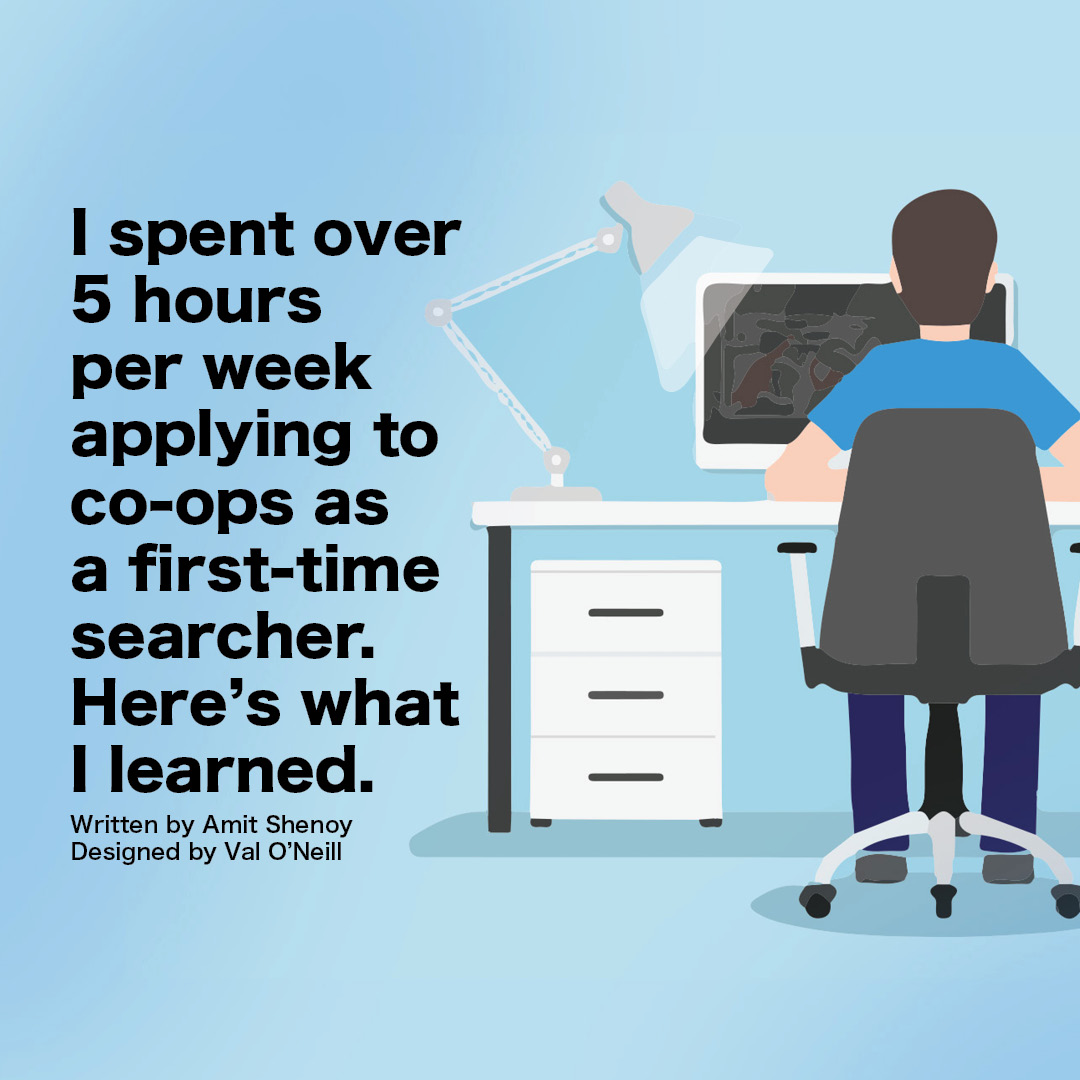
First, the big picture:
In Professional Development for Co-op (in my case, for Bioengineering/Chemical Engineering), you’ll learn social skills by practicing a personal elevator pitch and networking, how to interview, hear from student and employer panels and some NUworks tips and tricks.
Now let’s discuss what resources you will have access to directly from co-op class (but on your own time). First, you’ll receive a resource guide that offers tips and practical solutions to almost everything you could consider while applying to co-op (for example, negotiation and offer acceptance).
Second, you’ll meet your co-op advisor, who you can email for support at any time throughout the week. They will particularly support you with resume reviews, cover letter revisions, mock behavioral interviews and weighing the pros/cons of a job. Career Peers, former student co-op completionists now hired to support new co-op applicants, are available as well, whose contacts will be linked in your Canvas homepage or within the slide deck that your advisor will have prepared. These Career Peers can also help with resume review, cover letter revisions and interview practice, with the option to meet virtually or even in person in some cases.
There are also things you’ll develop from co-op class indirectly. The creation of your LinkedIn account, creation of your personal portfolio/website, cover letter writing skills, job application organization, how to apply to jobs outside of NUworks, application time management and optimizing NUworks use, to name a few. One question you will learn to answer for yourselves throughout your career is: How much are you worth? Co-op is certainly a learning experience, but you deserve to be paid with just compensation. A lifelong skill to develop now is communication. Emails, scheduling and being proactive in general are also key to success.
0. Start with Why
My biggest piece of advice is to start with why. Finding and securing a co-op comes later. There can be more than one why. In fact, there most likely will be. Maybe you’re a first-time searcher, and you’re looking for a company that has a strong supportive training culture. Maybe you’re an undecided major who’s looking for a job that will help you learn many different skills at once. Whatever your “whys” are, make this list early on. I would advise that you spend a significant amount of time on this. This is actually the most important part of your search because it narrows down your job pool and gives you more time to produce a quality application. Here are some ways you can verify that your “whys” are true to you at this point in time:
Talk to your friends and family about these reasons. Do they align with your principles and passions? Talk to your co-op advisor about these reasons. Are they realistic? If they are, now your co-op advisor knows to be on the lookout for jobs like that. Listen to people who are passionate about this field. Could you see yourself getting excited about this field? Scour the internet for inside looks, reach out to professors who might have had industry experience, and even reach out to companies asking if they’d let you shadow for a day. Who knows, that expressed interest might come back to help you later on! Remember – it is only when you clearly believe in why you’re doing what you’re doing that you feel fulfilled in how you work and what you accomplish.
These “whys” motivating your job search don’t change often, but they can, so make sure that you set reminders to audit how you feel about the work.
Now, how you find your job has become much more clear. Depending on how far you’re willing to and/or are able to commute, you can dedicate your time intentionally to finding the right co-op for you.
It is common for first-time co-op applicants to apply broadly because they’re both unsure of what they like and because they’re anxious about not finding a job. However, putting out 15 quality applications will land you a higher quality job rather than 150 monotonous applications of lower interest. Having now spent likely more than five hours assessing your interests, and more than five hours searching for 15-20 companies in your search radius that you really love, you’re now ready to apply these successful strategies to stay on top of your search:
- Track everything.
Create a spreadsheet or database — I recommend LibreOffice Calc, which will help you track important details of your top 15-20 jobs, such as application deadline, date applied, notes about the company, recruiter information, job number from NUworks or the URL to the application and a list of potential connections at the company.
- Switch up your resume.
If you’re using the same resume to apply to every job, then you’re hurting your chances. It may very well be that two jobs demand the same set of skills. However, each company’s mission and style will always be slightly different. A pro tip is to prepare a resume “bank” which contains bullet points for different experiences. That way, you can swap out these experiences for each job application. Sometimes it may be better to cite an older but more relevant professional/educational experience rather than a more recent but unrelated one. If your entire resume supports your candidacy for a role rather than just a portion of it, you will make for a much stronger candidate.
- Make time.
Job applications can easily become an unhealthy practice for students who mass-apply on the weekends or late at night. Instead, dedicate 1.5-2 hour chunks for each job application that will enable you to fine-tune your resume and cover letter to the company. This will make your application look more polished and genuine.
If you take even one of these tips into your co-op search, you’ll see great results. Happy applying!